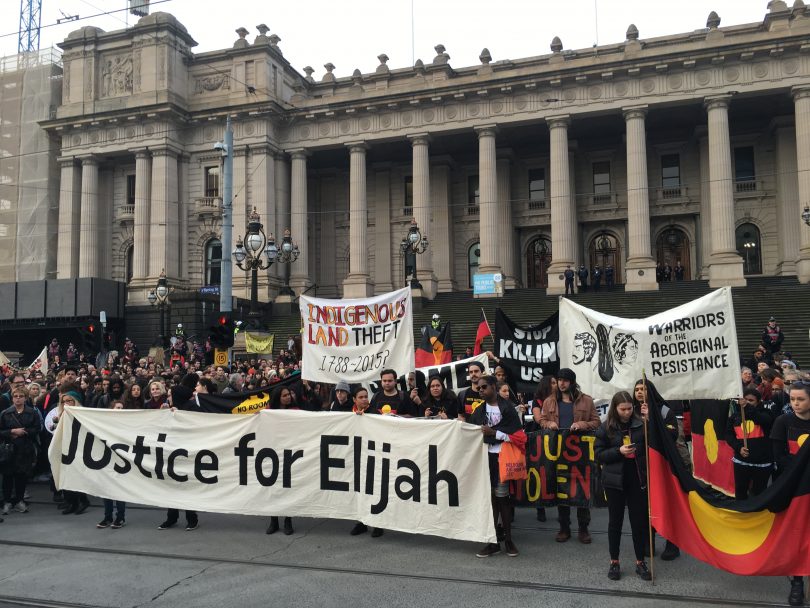Harriet Worrall-Carter
“Our people, our children, our youth are dying.”
One speaker, looking down at her young nephew, wept into the microphone, “it could have been any one of us”.
Young indigenous leaders wore their battered hearts on their sleeves while leading the Justice for Elijah Doughty march today in Melbourne.
And they were not alone. Thousands of Victorians gathered on the steps of Parliament to protest last weeks heavily scrutinised Supreme Court’s ruling in the case of Elijah Doughty.
#JusticeforElijah
Melbourne protest

Elijah Doughty (photo: Facebook)
14-year-old Elijah Doughty died from multiple injuries after being run-over by a two-tonne truck traveling at nearly 70 kilometres per hour.
The driver – a 56-year-old Kalgoorlie man who cannot be named – chased the teenager because he believed he was riding his stolen motorbike, but told the court he did not intend to hurt Elijah.
A jury – with no indigenous members – found the driver not guilty of manslaughter.
The man was instead found guilty of dangerous driving causing death, a much lesser charge.
“Elijah’s killer was sentenced to three years in prison and is eligible for parole as early as 2018. It probably will happen,” one speaker said.
“The system continues to fail us.”
Chief judge, Wayne Martin, sentenced the 56-year-old to three years jail. However, if granted parole, the man could be released early next year.

Will Austin (supplied)
Organisers of the protest, a collective of young aboriginal people called Warriors of the Aboriginal Resistance (WAR), are calling for justice for the “brutal murder of Elijah”.
Will Austin, a representative of WAR, hopes the protest will highlight the ingrained racism in Australia’s justice system.
“As a result of his aboriginality, Elijah has been portrayed as a criminal and a deviant, rather than as a victim of violence,” said the 21-year-old.
“The racially motivated killing of Elijah and the unjust treatment that he received by the state in the aftermath of his death, is not an isolated incident.”
Thousands marched from the Victorian Parliament to Flinders Street Station, where the group has staged a sit-in, “for as long as it takes for their message to be heard”.
JavaScript is not available.
No Description






